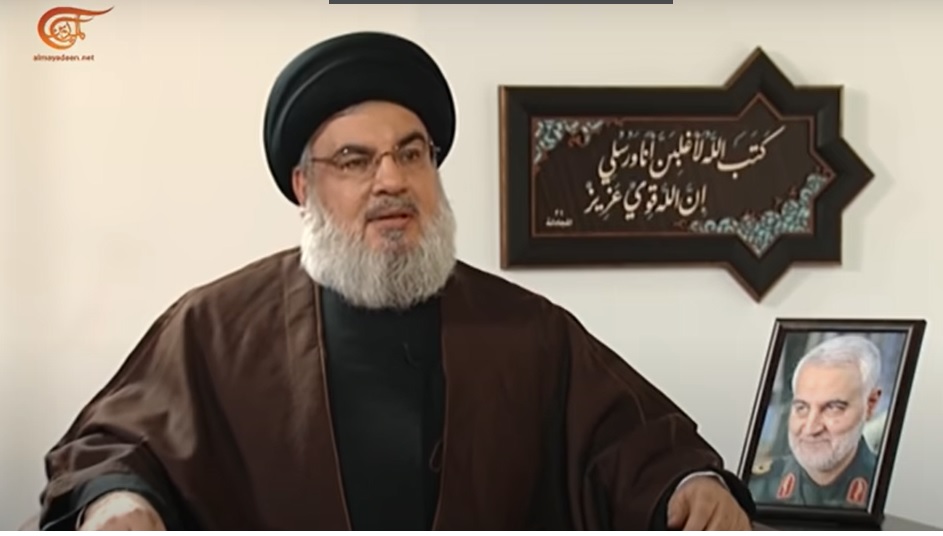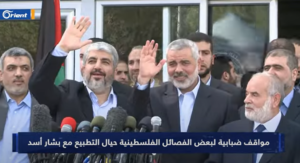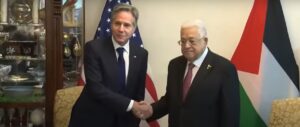Hezbollah Secretary General Hassan Nasrallah claimed in a speech he delivered in Lebanon on October 29 that the agreement marking the maritime border between Israel and Lebanon is “a great victory for Lebanon, for the country, for the people and for the resistance”.
He clarified that the land borders between Lebanon and “occupied Palestine”
were determined by the French and British mandate rulers and that then the maritime borders have notbeen determined.
Although Hezbollah instructed the Lebanese government behind the scenes regarding the “red lines” in negotiations with the American mediator, Hassan Nasrallah claimed that his organization was not involved in marking the maritime border and that this was the responsibility of the Lebanese government only.
He emphasized that Lebanon did not give any security guarantees to Israel as part of the agreement and that it achieved everything it wanted, according to him, this is a “great historical victory”.
“There is still only one small matter that has not been resolved”, he said, “and it is a small square of 2.5 km and Lebanon insists that this is occupied territory that must be liberated”.
Nasrallah revealed what he believed about what led to the achievement of the agreement and said it was two factors: Hezbollah’s threats to Israel and its military power.
As far as Hezbollah is concerned, Israel succumbed to the pressure and threats of a war that Nasrallah exerted on it by launching 4 drones at the gas rig in “Kirish”.
According to Nasrallah, Israel was deterred by Hezbollah and there is no recognition of Israel or normalization in the agreement that was signed.
Unfortunately, Hassan Nasrallah is right, Israel was afraid of a military confrontation with Hezbollah and surrendered to Hezbollah’s threats.
Hezbollah actually blackmailed Israel by opposing Israel starting to extract gas from the “Karish” gas field before the agreement was signed and Lebanon received its rights, it launched drones towards the “Karish” gas field and actually put a gun on the table for the Israeli government and threatened to use it , Israel lost the poker game.
Nasrallah claims that Israel “is not ready to go to war because of the internal disputes within it”, he correctly reads the political map in Israel, he just forgot to mention that Yair Lapid wanted a political achievement before the elections to show that he can also as prime minister bring about a political agreement with an Arab country.
Hassan Nasrallah further revealed that this is not an international agreement and there is no process of normalization with Israel. In doing so, he completely contradicted Prime Minister Lapid’s claim that Lebanon recognized the State of Israel.
Lebanon and Israel, each separately, see the agreement as a great victory for them, the Israeli government tries to emphasize that this is a great political achievement for it, but Lebanon takes a distance and emphasizes that it has not given up on its red lines in its relations with Israel despite the agreement.
Lebanon accepted all its demands in the negotiations, there is no debate about that, but despite Hassan Nasrallah’s words, there are commentators in the Arab world who see the agreement on the maritime border as an important move that cannot be ignored.
According to them, even though Israel and Lebanon did not negotiate directly between them, the very signing of the agreement is a form of recognition by Lebanon of the State of Israel in an indirect way and in a practical way because the “State of Palestine” does not exist, Lebanon had to come to terms with the reality on the ground and negotiate with representatives of Israel even though the Palestinian Authority has an embassy in Lebanon.
The agreement on the maritime border also set a precedent for reaching an agreement in the future on the disputed points on the land border between Israel and Lebanon, but Hezbollah is in no hurry, it wants to preserve these disputes and not resolve them so that in the future it will have an excuse to start a war if its interests require it.
Hezbollah gave the green light to the agreement because it came to the conclusion that its internal interests currently require achieving internal stability in Lebanon, given its position in Lebanese public opinion, and not a military escalation that could lead to war, the production of Lebanon’s natural gas will take several more years and at this time Hezbollah is not interested in an escalation with Israel.
According to Lebanese sources, Iran also approved Hassan Nasrallah’s move because it estimates that despite the impasse in the negotiations on the nuclear agreement, President Biden will make another effort to reach a new nuclear agreement immediately after the mid-term congressional elections in November, therefore, is not the right time for an escalation between Hezbollah and Israel.




